In the golden September, we have ushered in the Seventh Chinese Farmers’ Harvest Festival. Seated in Beijing, the capital of China, the Beijing University of Agriculture (BUA) has always taken it as its mission to boost agricultural prosperity. By introducing new varieties, technologies, and concepts to the field and assisting farmers with technology and wisdom, BUA aims to contribute to the efforts to comprehensively advance rural revitalization.
Developing agricultural “chips” to serve the construction of “Capital of Seed Industry”
Seeds are the foundation of agricultural modernization. To give full play to its professional advantages in the field of urban agriculture and forestry, the University is committed to the collection, evaluation, screening, cultivation, and creation of germplasm resources, and has established a corresponding breeding and planting technology system, aiming to inject new vitality into agricultural development through the demonstration and popularization of large-scale and industrialized projects.
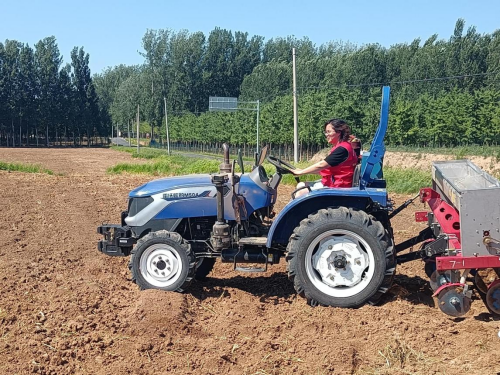
In 2022, the issue of soybean self-sufficiency received special attention in the “No. 1 Central Document”.BUA has developed five special soybean varieties for soymilk, such as “Beinong 103” and “Beinong 106”. Since 2023, the University, through cooperating with the local governments, has made full use of the planting spaces of the reclaimed land to implement the task of soybean planting. It has successively promoted improved varieties and methods in Tongzhou, Pinggu, Changping, Zhangjiakou, and Hengshui, and demonstrated the success of its special soybean varieties in more than 2,000 mu of demonstration farmland, shouldering the responsibility of ensuring stable grain production and supply.
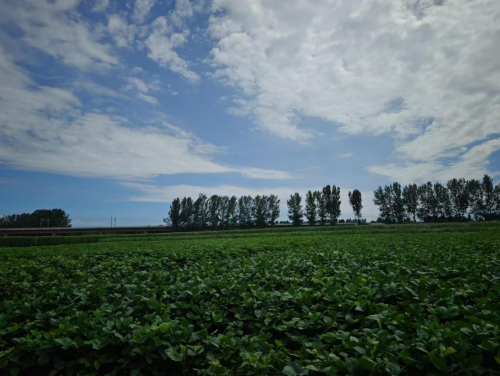
High-quality feed is the key to promoting the development of modern animal husbandry. In this regard,BUA has cultivated more than 20 special multiple-resistant varieties of silage corn with high yield, high quality, wide adaptability, and easy seed production. Among them, “Beinong Silage 368” has been included in theNational Catalog of Excellent Crop Varieties to Be Promoted (2023); “Beinong 3651”, “Beinong 851”, and “Beinong 861”, as well as excellent silage corn inbred lines P2193 and P60271, have been successively granted with the national certificates of rights to new varieties of plants. The silage corn research team has set upProfessorWorkstations in regions such as Changji of Xinjiang, Linze of Gansu, and Miyun of Beijing, to give full play to the advantages of University-enterprise cooperation. The team has also promoted and planted its fine varieties in more than two million mu (1 mu = 1/15 hectare) of spring sowing areas such as Inner Mongolia, Beijing, Ningxia, Gansu, Shaanxi, Shanxi, and Xinjiang, with a yield per mu of more than 5,000 kg, injecting impetus into the revitalization of the dairy industry and animal husbandry.
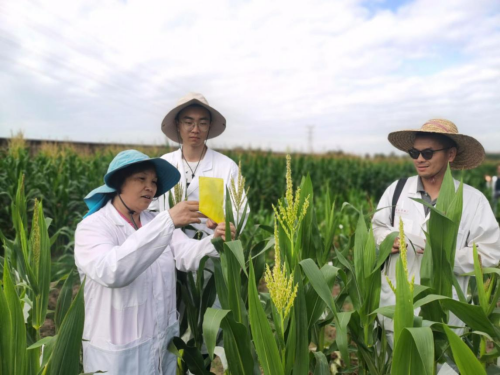
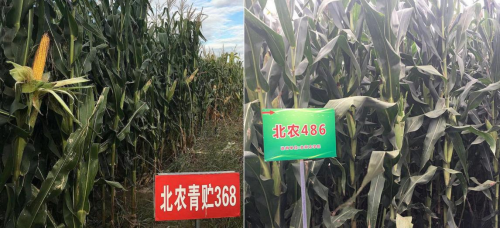
Lettuce, as a sciophilous plant that originated in Europe, is unsuitable for Beijing, a cityfeaturingfour distinctive seasons. To help the “delicate” European plant settle in Beijing,BUA has successfully bred four new lettuce varieties characterized by strong environmental adaptability, wide range of production and application, multiple cultivation types, high suitability for mechanized production, and edibility in both raw and cooked state, as well as four new varieties of ornamental and edible purple-leaf lettuce with rich nutrition and multiple colors. In this way, the University provides a range of improved varieties that satisfy the needs of Beijing for the high-yield, light, and efficient production of leafy vegetables, enriching the options of vegetables with different colors and varieties for residents in the capital. In addition, the University has also promoted its new varieties of lettuce in a cumulative total of more than 200,000 mu of farmland in Chengde of Hebei, Nanyang of Henan, etc.

Promoting “local specialties” based in Beijing
“Local specialties” are not only carriers of regional culture, but also important drivers of economic development.BUA has set up an interdisciplinary social service team to explore and enhance the value of “local specialties” and extend the industrial chain through variety improvements and technical training. Focusing on the demand of optimizing the variety structure of “Pinggu Big Peach”, the University has completed the survey on the growth habits of more than 30 newly introduced peach varieties. Since 2019, the University has selected four early-maturing varieties and five medium-maturing varieties suitable for promotion and planting in Pinggu. The unit prices of these new varieties are all within the range ofRMB12–20perkg, twice higher than that of old varieties,greatlyimproving economic benefits for fruit farmers. Outstanding scientific and technological talents have also been sent to Dahuashan Town, the main production area of “Pinggu Big Peach”, in order to fully leverage the scientific and technological advantages of the University's fruit tree team, apply for the building of “Doctoral” farms, achieve breakthroughs in the most time-consuming production link of “Pinggu Big Peach” (big peach bagging technology), and develop a demonstration bagging-free, labor-saving production technology system. Besides saving costs at the rate of aboutRMB3,000 per mu, the system also significantly improves peach quality, increases aromatic species in peaches, and enhances their flavors.
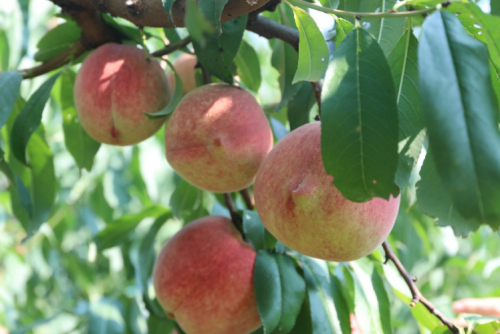
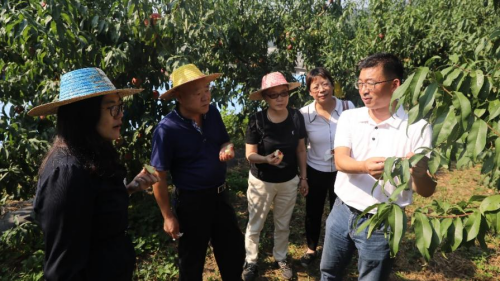
Focusing on increasing the added value of peaches,BUA has organized the technical training and promotion of “Cultural Peach” stickers, turning peaches sold by weight at a price of a few bucks per kilogram into precious artworks sold by pieces at a price of dozens of bucks per piece. The relevant cases of agricultural assistance have been included among the UN’s Third Global Best Practices in Poverty Reduction.
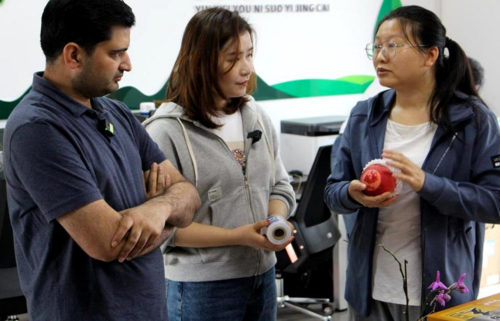
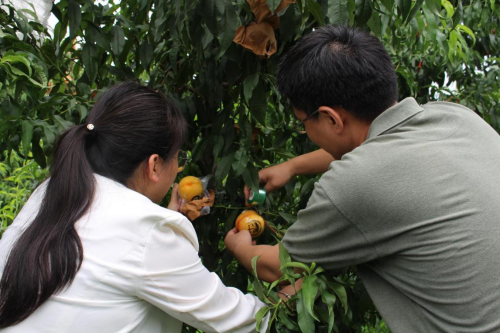
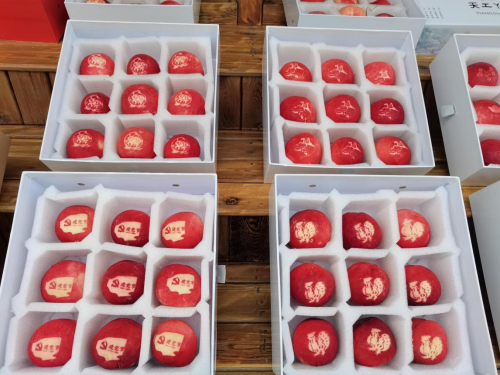
To build the brand of “Huairou Chestnut”,BUA has established an expert workstation for garden greening in Bohai Town of Huairou District, and bred a series of new chestnut varieties, including the extremely early-maturing of the state-approved improved variety “Jingshuhong”, the featured improved variety “Beinong Ice Chestnut”, and the drought-resistant improved variety “Short Flower Yunfeng”. The University has also used chestnut flower and chestnut shell extracts todevelopbud-inhibiting formulae that can prolong storage, thereby effectively reducing the internal decay of chestnuts during storage. Under the guidance of University experts, the “Huairou Chestnut” cultivation system has been successfullyincluded in the list of the seventh batch of China’s important agricultural cultural heritages.
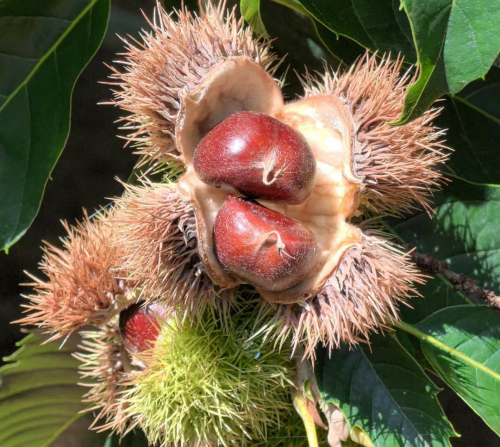
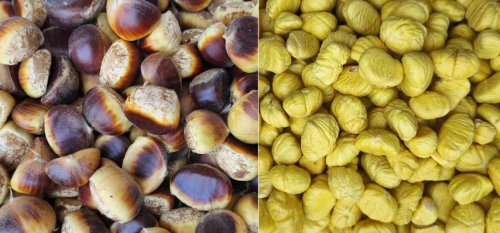
Establishinga characteristic think tank to achieve the integrated development of agriculture, culture, and tourism
The deep integration of agriculture, culture, and tourism offers an effective way to enable business innovation and accelerate agricultural transformation and upgrading, and an important engine for comprehensively promoting rural revitalization. The Institute of Urban Agriculture of the University undertakes the tasks of promotion, planning, and guidance under the “Ten,Hundred, Thousand and Ten Thousand”TourProgram of the leisure agriculture, and has successively participated in the drafting and research of policy documents such as thePlanning of Beijing for Developing Leisure Agriculture during the “14thFive-Year Plan” Periodand theMeasures of Beijing for Beautiful Leisure Village Management. It also provides consulting, evaluation, audit, monitoring, and other dynamic services for the construction of more than ten high-quality routes, the creation of more than 100 beautiful leisure villages, the upgrading of more than 1,000 leisure agricultural parks, and the renovation of nearly 10,000 folk reception households. Since 2022, it has helped Miyun District and Mentougou District in joining the rank of national key counties in leisure agriculture, and guided Cuijiazhuang Village of Donggao Town, Pinggu District in being selected as a national “One village, One Product”DemonstrationVillage. The Institute of Smart Agriculture ofBUA has undertaken the “Digital Beijing Village” project in Beijing. In 2024, it took the lead in promoting its application in 19 demonstration villages of the capital under the “Ten,Hundred, Thousand and Ten Thousand”TourProgram, empowered rural governance, characteristic industries, and rural leisure tourism with modern information technology, and constantly enriched the business types of “agriculture + experience”, “agriculture + science popularization”, “agriculture + research-based learning”, “agriculture + health & vacation”, etc.
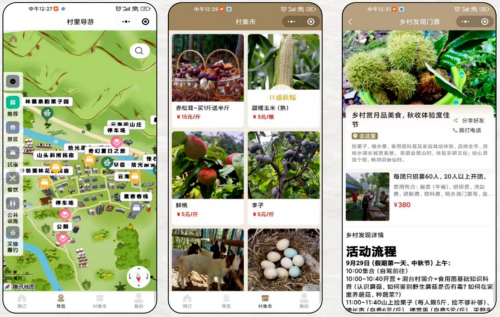
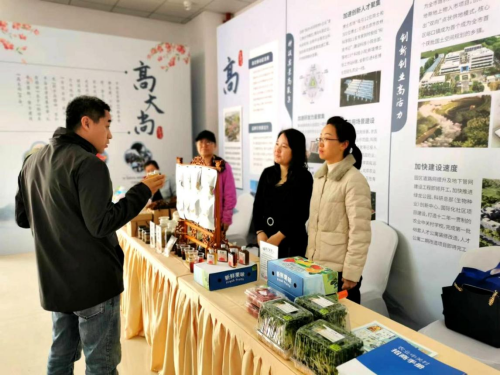
By deeply studying and implementing the important statements of General Secretary Xi Jinping on the “three rural issues” (i.e., hollowing-out of rural areas, marginalization of agriculture, and aging of farmers),BUA will shoulder the mission of boosting agricultural prosperity, and adhere to its development orientation as a high-level applied university with urban agriculture and forestry characteristics in building an urban modern agriculture and forestry technology innovation system, a new agricultural talent training system, and a “station-network” rural revitalization service system. The purpose is to contribute “BUA wisdom” and “BUA strength” to the comprehensive promotion of rural revitalization and the efforts to basically realize agricultural and rural modernization in the capital.
 LATEST NEWS
LATEST NEWS
 search
search


